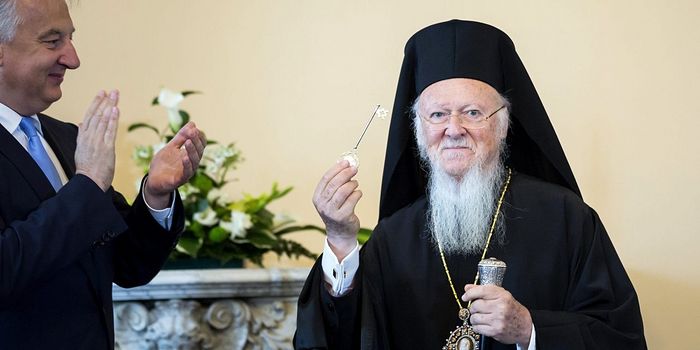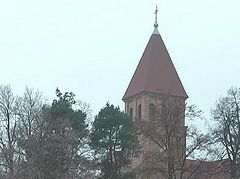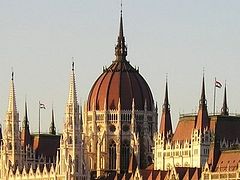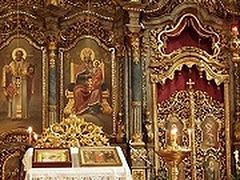Budapest, August 23, 2017
Hungarian Deputy Prime Minister Zsolt Semjén turned over keys to a complex of buildings in central Budapest to His All-Holiness Ecumenical Patriarch Bartholomew on Sunday, a move approved by lawmakers on both sides of the aisle, reports Daily News Hungary.
“Hungary will never forget what it owes to Orthodox Christianity,” Semjén said, and the complex on Muzeum Avenue represents a sign of Hungary’s gratitude to the Ecumenical Patriarchate. It also gives opportunity for services of the jurisdiction to be celebrated, he added. The site of the Ecumenical Patriarchate notes that the preamble of an Agreement of Cooperation between the Ecumenical Patriarchate and the Hungarian government signed three years ago, states that “Saints Cyril and Methodios brought Eastern Christianity to these lands, which continues to be present as a living religious community. Even before the foundation of the state, the ancient Ecumenical Patriarchate of Constantinople already had relations with the Hungarians and had sent Saint Ierotheos the Bishop to spread Christianity.”
The Deputy Prime Minister also added that King Stephen of Hungary, the first king from 1000 to 1038, was venerated by the Orthodox Church at the turn of the millennium.
Patriarch Bartholomew, on an official four-day visit to Hungary at the invitation of national authorities, expressed his gratitude for the “historic building complex of immense value,” noting that they were necessary for the Church “to carry out its diverse pastoral and cultural tasks.” According to the 2011 census, 1,701 Hungarians responded that they follow the Greek Orthodox faith.
The complex is to be used for the offices of the Ecumenical Patriarchate’s Holy Metropolis of Austria Exarchate, a patriarchal academy, a Greek school, a museum of ecclesiastical arts, and a guest house. Further, “It is the desire of the Ecumenical Patriarchate and the local Metropolis that this new headquarters of the Exarchate serve as a place to further advance dialogue, as well as become a cultural center where all people can meet.”
This is not the first time Hungary has shown good will to the Orthodox Church. On February 1 of this year, Hungarian Prime Minister Viktor Orban signed a government order to allocate a state grant of $8.1 million to the Russian Orthodox Church’s Hungarian diocese for restoring and constructing new churches. The first Russian Orthodox parish on Hungarian territory was built in the eighteenth century in Tokaj, where there was a Russian Cossack garrison. This church has survived until today. Another Russian church appeared in 1803 on the outskirts of Budapest.
In July it was reported that Hungary is set to donate $1.7 million to help restore damaged and dilapidated churches in Lebanon.
This most recent donation comes as part of Hungary’s aim to become a protector of persecuted Christians both within and without its borders. In September 2016, it became the first country to open an office specifically for addressing issues of Christian persecution in the Middle East and Europe.
“If we really want to help, we should help where the real problem is. … We should first help the Christian people before Islamic people,” Orban has said.





Hungary has been unfairly pilloried for failing to fulfill every dictat of the one world enthusiasts in Brussels who rule the EU and the European Community.
Unsurprisingly, Hungary has forged it own path guided by the interests of its people (only 70 % of whom live within Hungary's borders) with a recognition of regional and European values and the lessons of a turbulent history during which Hungary often suffered for standing its ground and refusing to submit to dictators, foreign invaders and the whims of imperialist powers.
Thus, it is within Hungary's character to recall and honor the debt's of its past, especially when the Patriarch faces such existential challenges in its home Country.
Bravo to the Hungarians!!!